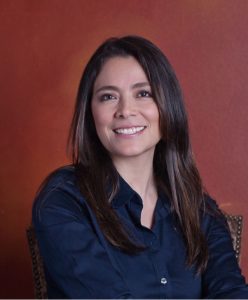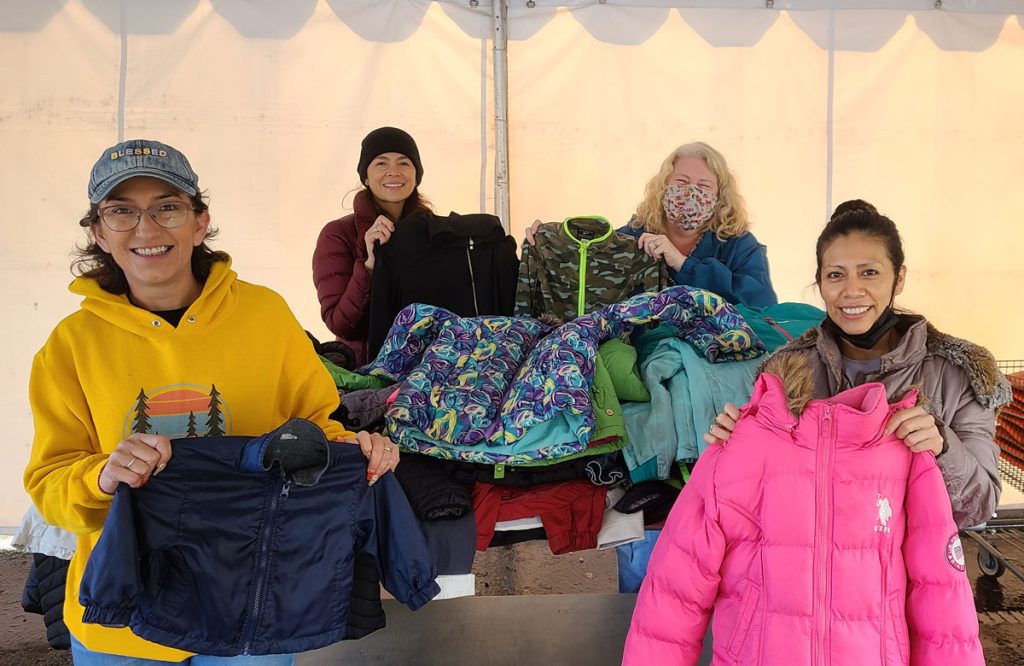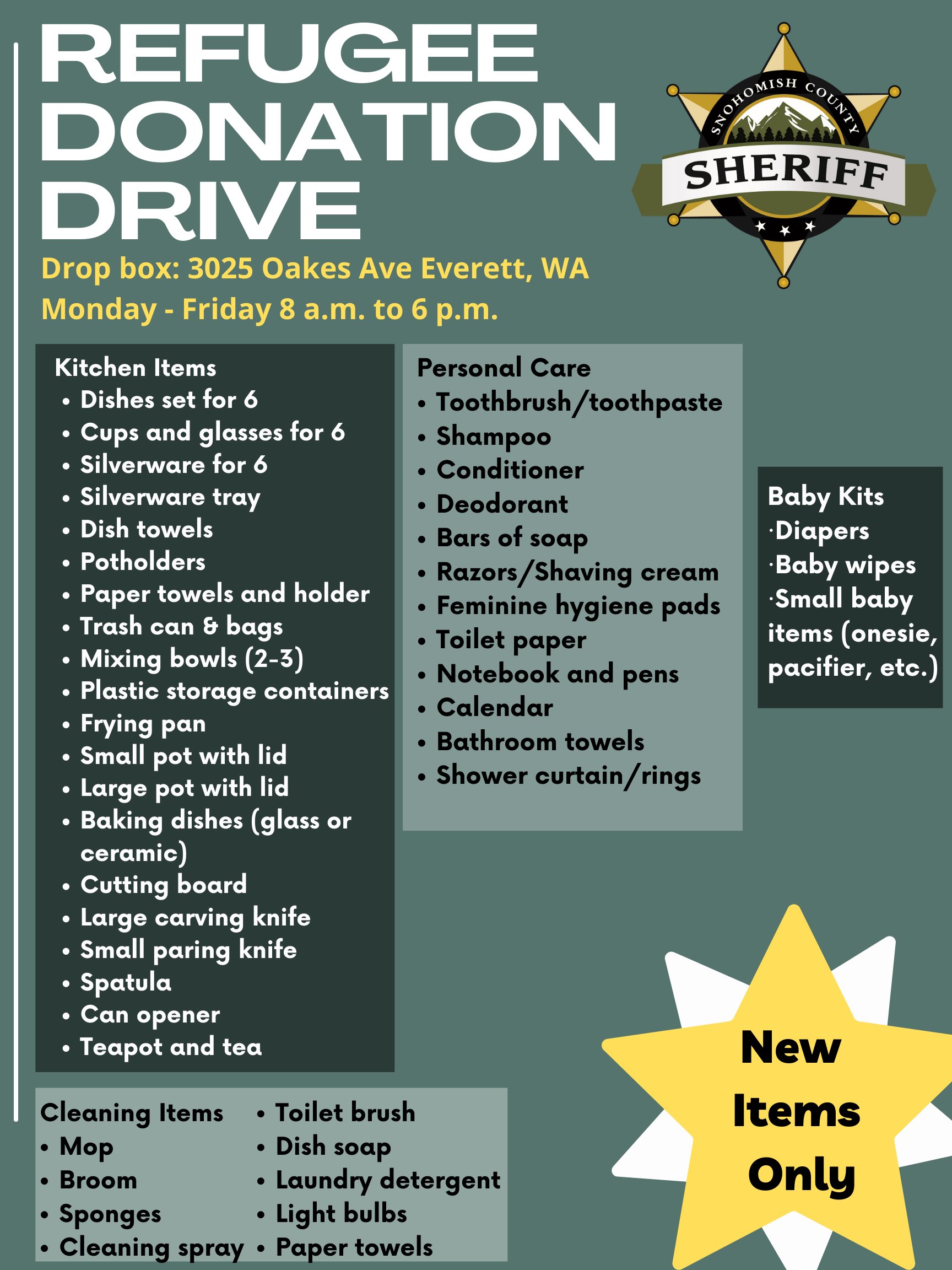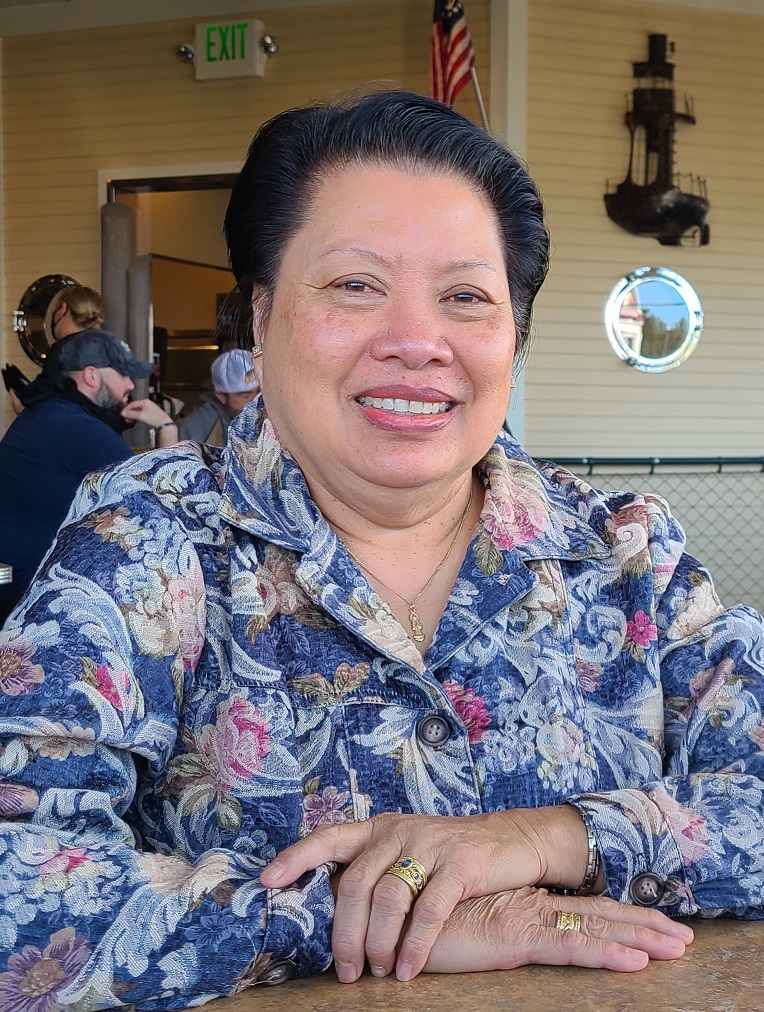As refugees from Afghanistan arrive in Washington, the Lynnwood Times took the opportunity to speak with the Executive Director of Refugee & Immigrant Services Northwest, Van Dinh-Kuno, a beacon of hope and strength to so many on their journey to rebuilding their lives.
For more than thirty years, Director Dinh-Kuno has led refugee services in Snohomish County. As a former refugee from Vietnam, she knows firsthand what it is like to immigrate to a foreign country on the other side of the globe, and the unique struggles that come with such a transition.
Refugee & Immigrant Services Northwest, is a refugee led, multi-ethnic, multi-cultural organization whose mission is to “empower refugees, immigrants and their families to become self-sufficient and healthy, contributing members of society.”
Snohomish County and Lynnwood: the new home to many Afghan refugees
“We’re probably close to 60 families in Snohomish county,” Dinh-Kuno said, referring to refugees from Afghanistan. Afghan families have five members on average, though she is currently trying to house a family of nine.

Of those 60 families in Snohomish County, 35 of them reside in Lynnwood. Lynnwood is sort of the ideal location for Afghan refugees because it’s near Seattle and has ample housing availability. “We have built a good relationship with apartment managers,” Dinh-Kuno added.
With roughly 120 Afghan refugees in Lynnwood today, Dinh-Kuno says, “you have new arrivals coming in almost every day. This is just the beginning.”
Arriving in the States
Director Dinh-Kuno explains what the typical journey of a Afghan refugees to Lynnwood looks like, saying, “They go through countries like Germany, Italy, or Bosnia before they arrive at a military camp in the United States. They can stay there for a week or so, and then they head out to whatever state is willing to accept them.”
She also noted that Washington is one of the top states when it comes to housing refugees, along with Texas, New York, and California.
Once refugees arrive in Washington, “they go directly out to the community. If they have friends or family willing to take them in they can stay there, and if not, we find them a hotel or alternative form of housing,” Dinh-Kuno said. “We try to get housing as quickly as possible.”
Every weekend, more refugees arrive at a “Welcoming Center” in Snohomish County. The center is a partnership with many organizations, like Dinh-Kuno’s Refugee & Immigrant Services Northwest, as well as Volunteers for America and dental and medical service providers.
At the Welcome Center, Dinh-Kuno says, “we do a deep assessment with [the refugees] to make sure we don’t miss any needs that they have.”
Assessing and meeting needs
After the Welcome Center processing and finding housing for the families, the next step is to provide them with food, which can be challenging given the large family sizes and their dietary needs.
Halal meat has been processed according to Islamic Law and is often part of a religious diet which many Afghan refugees follow. Luckily, the local Costco carries these products. “That’s good news,” says Dinh-Kuno. “We are very very grateful for Costco Business Center supplying us with halal meat for the Afghan families.” While the food isn’t free for refugees, Dinh-Kuno says that her organization is able to buy it at wholesale price.

The Lynnwood Foodbank has also been a huge support. According to Dinh-Kuno, “Each family got three boxes filled with appropriate food for Afghan people last Saturday.”
Councilwoman Julieta Altamirano-Crosby has played a significant role at the Lynnwood Foodbank. In addition to volunteering on a consistent basis, the councilwoman also helps identify and meet local needs through her connections with the community and organizations like the foodbank.
“We have to listen to one another,” Councilwoman Altamirano-Crosby told the Lynnwood Times. “Through listening, we develop empathy to help others in our community.”
Last week, the Refugee & Immigrant Center Northwest, WAGRO Foundation, and the Lynnwood Food Bank conducted a coat drive, which brought in more than 60 coats for Afghan children.

The Snohomish County Sheriff’s Office has also been involved in helping Afghan refugees. Last month, the office sponsored a donation drive to collect new household items for refugees. Their Facebook post about the drive reads, “Many of these individuals risked their lives to assist Americans in Afghanistan and help keep our service members safe during the last twenty years. They are translators, political allies, teachers, doctors, mothers, fathers and children. Their support for the United States placed them in imminent danger under the Taliban, and they are arriving here to seek safety for their families.”

Dinh-Kuno also mentioned Mayor Nicola Smith when talking about local leaders who are actively assisting refugees. “Nicola Smith is involved with the refugees in her city,” she said. “She and her family help collect clothes for the refugees.”
Aside from Mayor Smith and Councilwoman Altamirano-Crosby, Dinh-Kuno says she doesn’t have any contact with the city. “I think they should do something because I see more Afghans staying in Lynnwood than they do in Everett.”
“I would also like to see Lynnwood have some funding to support refugees and immigrants,” she continued. “They need to work with organizations that actually have a connection and a trust with refugees and immigrants.”
She also noted how some organizations that have received funding for this cause haven’t been held accountable for the funds they have received. “So they need to think outside the box,” she said.
Readers who are interested in helping Afghan families can click here to contact Refugee & Immigrant Services Northwest. Any help is welcomed, and they are looking to connect with employers and landlords.
“We’d love to move families to apartments so that children can have stable housing and focus on their studies,” said Dinh-Kuno.
Don’t forget about the Afghan women
Director Van Dinh-Kuno emphasized the importance of helping Afghan women. “My worry is, I hope every social service agency, every government entity, when you’re helping the Afghan people, don’t forget about the women,” she said. “We tend to focus on the men and we leave the women behind.”
“In our country, the needs of men and women aren’t that different. But because of the culture of the Afghan people, the women are always deferring decisions to the men,” she explained. “You’ll never see them saying ‘I want this and I want that.’ And if they do, they’ll say it behind the curtains. They’ll probably tell the husband, but they won’t tell you.”
She also spoke to the fact that, under 20 years of Taliban rule, Afghan women often “have no education at all.” When the U.S. Government stepped in, she explained how “they focused on the young women. But the older women got left behind. By the time we got into Afghanistan, any woman 20 years or older, they got left behind because they were already married with children.”

“And now they arrive in our country and they have very limited education with them. So we need to focus on English language learning, training, driving, and education,” she said.
According to Dinh-Kuno, these needs are compounded by the fact that Afghan men usually marry younger women. “So when their husband dies, what are they going to do if they don’t have some of these skills like language skills and driving skills?” (Dinh-Kuno noted that about 50% of the Afghan refugee men speak English, but none of the women do).
She recounted a time in the early 1990s when she helped a small group of Iraqi women earn their driver’s license. From that experience, she learned that group learning was especially beneficial as it fosters support, encouragement, and a sense of community.
“We need to be creative with the services we provide,” she concluded. “If the mother is healthy and well educated, the children will be healthy and well educated. So we’re not just talking about one generation, but two generations that will benefit from whatever we do today.”
Pathway to Citizenship and the Workforce
Over 95% of Afghan refugees say they want to work, according to Dinh-Kuno, but the process of a refugee becoming a contributing member of society can be extremely long. When they arrive in the U.S., refugees are given the Humanitarian Parole status — a status which prevents them from being productive members of the community.
“Within two years they have to apply to become Asylum and then it goes from Asylum to Green Card,” she explains. Five years after obtaining a Green Card, refugees can finally apply for Social Security. However, as Dinh-Kuno repeatedly stressed, “nothing is guaranteed” during this process.

In their Humanitarian Parole status, refugees receive monthly funds from the Department of Social and Health Services. According to Dinh-Kuno, it’s about $375 a month for a single person. “And even in a family of four, you’re barely getting $600. You can’t even pay one half of your rent with that,” she said.
“The average refugee comes to this country and will rely on Social Services for about six months or less. And when they go to work the percentage of [them] that return for public assistance is less than three percent.”
“Don’t you love when you invest in the stock market and you have a 97% return?” Dinh-Kuno laughed. “I would throw hundreds of thousands into the stock market if the returns were that good!”
She concluded by saying, “They all want to work. They want a better life. They want to contribute to this community. They’re hoping that someday they can own a home. And every refugee and immigrant, that’s what they are.”
For those curious to know how refugees contribute to the community, Dinh-Kuno suggests driving down Highway 99.
Message about refugees
When asked why some people are unwelcoming, fearful, and even hateful towards refugees, Dinh-Kuno said, “Misinformation. Don’t believe whatever you hear — believe what you see. And if you apply that to your common sense, you’ll never be in a situation where you hate people and want to put people down.”
“We are a community,” she continued. “We are taking care of each other and respect each other even though we are different, but we are willing to listen. Our country right now, we aren’t there. We love to put people down and say hateful things.”

“I think the people who have that mentality, they don’t take time to understand their neighbors. Deep inside of them they’re probably very unhappy with themselves. You have to be happy with yourself before you can care for others. If you’re not happy with yourself, you’re normally putting your own hatreds and angers on the next person to blame,” she observed.
Director Dinh-Kuno reccounted two occasions where she received threatening calls. Four weeks ago on a Friday afternoon, she described a woman who called her, demanding to know where the Afghan refugees were being housed. The woman said she wanted to “come tell them to leave” and that “they aren’t welcome in this community.”
Afterwards, Dinh-Kuno called the police chief to increase patrol in areas where the Afghan families reside.
The second instance exemplifies how misinformation can breed hate. Dinh-Kuno said a man named Mr. Johnson called her recently, explaining how he had heard that 100,000 Afghan refugees were brought to Snohomish County.
“And he’s wondering why they’re coming here and why they’re bringing them here, saying we’re done helping them,” she said. “And when I talked with him I was really worried.”
She explained to him, “Mr. Johnson, I don’t know how you got this news, but I’m glad you called me and I hope you’re helping to support these Afghan people because in reality, if we brought that many into Snohomish county we’d need 747 flying night and day to bring a hundred thousand people coming in.”
The call ended with her saying, “Mr. Johnson, I appreciate you sharing this with me and I hope you’ll stand side by side with me and help me in supporting these refugees.” He hung up.
But on the other hand, she has received many calls in support with people asking how they can get involved. Volunteers have to undergo a background check before they’re skills are matched with a position. The check is to help ensure that the trust between Dinh-Kuno’s agency and the refugees stays intact, because it would only take one bad actor to ruin the trust she has built and preserved over 30 years in Snohomish County.
“We can’t afford to let any of them get hurt,” she said.
She talked about how 90% of people in the county are supportive of their mission. “I have to say, I’m really proud to live in Snohomish county. I’ve been in Mukilteo for 36 years,” Directo Dinh-Kuno said.
“You know, despite everything, Snohomish county is still the best place to live, work, and raise your children.”
The last question the Times asked her was what she would like the City of Lynnwood to do. She responded, saying, “You know the city of Lynnwood is very-very diverse. And I would like to see the city, from the Mayor down to the Council down, take time to listen. Take time to listen to their own community. The one that’s been here or the ones that are just arriving. Get to know them. And partner with them to help make Lynnwood a better place for all.”
Looking to help Refugee & Immigrant Services Northwest
To learn more about Refugee & Immigrant Services Northwest, visit https://risnw.org/ or call 425-388-9307.
Author: Bo John Brusco











7 Responses